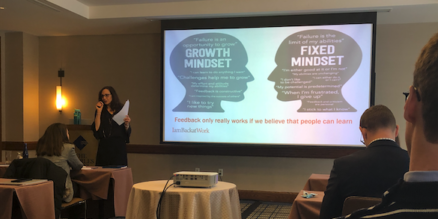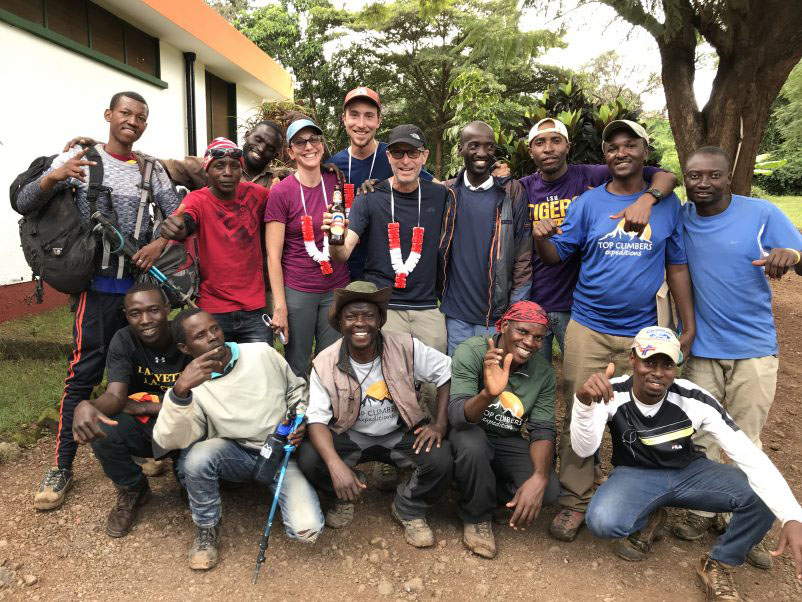Last week I presented a workshop on The Gift of Feedback at Mirakl, a Boston start up.
As part of our discussion, we talked about feedback often being a request to change and that how we deal with change often depends on whether we have a growth or fixed mindset. We talked about how to build a growth mindset, as individuals and as an organization.
When we have a growth mindset we see failing as a part of life, it is as an opportunity to grow. We embrace challenges to change and it is about growing and learning from everything we do, and believing that we can do anything we set our mind to. We enjoy the journey not just reaching the destination.
When we have a fixed mindset we see failure as the limit of our abilities. We don’t like change and to be challenged. We are either good at something or we are not. Our capabilities are fixed.
I shared with the group how I had a fixed mindset when it came to fitness. We can have a growth mindset in some aspects of our lives and a fixed mindset in others.
Take a moment to think honestly. In what areas do you have a fixed mindset?
I told the group about how at the age of 50 I decided that I wanted to get fit. Exercise was never part of my life. At different points I tried different things but never stuck with anything. I always felt that I was no good at it and that I never could be.
But I reached a point where I wanted to make a change. I wasn’t getting any younger and I wanted to live healthier.
I had to develop a growth mindset. Make the shift to believe that:
My fitness capabilities are NOT predetermined.
Effort and attitude will determine my ability.
I need to keep on practicing to get better.
I set myself a very high goal of climbing Mount Kilimanjaro. It helped me to have a specific goal. I made the training a priority. I put it on my schedule.
I started in small steps, walking, then hiking more and more on a regular basis. Even when I didn’t get out as much as I planned on some weeks, or hike as fast as I wanted on others, I kept on going.
I made it to the top of Mount Kilimanjaro with a lot of can-do attitude and determination. I then decided to start running. Again, I had to take small steps. I downloaded the app ‘Couch to 10K’. At first I could only run a few hundred yards. Now, I am fitter than I have ever been, and I regularly run 3-6 miles multiple times a week.
When we nurture a growth mindset we embrace challenges and it is our effort and attitude that determine our abilities.
So what was that area where you have a fixed mindset?
What small steps are you going to take to make a change and move yourself from a fixed to a growth mindset?
You can do it!





